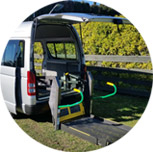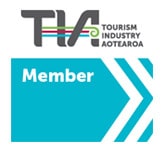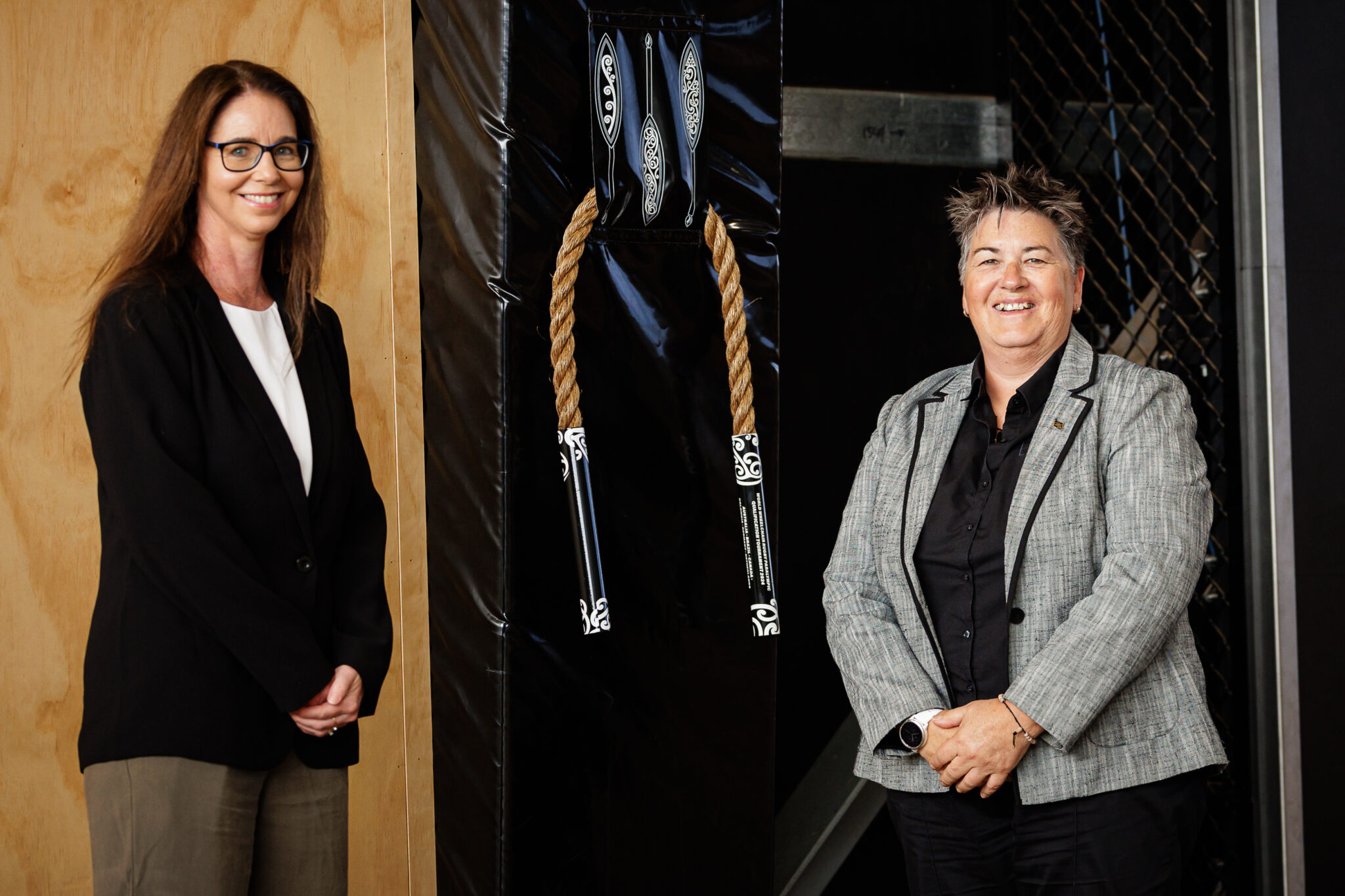
The Wheel Blacks might have missed out at the recent qualifying tournament for the 2024 Paralympics, held in Wellington. But New Zealand was a winner in every other way, thanks to the incredible feat of organisation by those behind it. Here’s how it went, including our wee part in it.
In modern times the Paralympics has grown to become a Very Big Deal indeed. It’s one the world’s largest sporting tournaments, with 4,250 athletes participating in the 2020 games. And that’s just the culmination. In order to take part in the final games, athletes and teams have to take part in qualifying tournaments right across the globe.
Wheelchair Rugby is popular in New Zealand, and the national team, the Wheel Blacks, are a force to be reckoned with.
The sport is organised internationally by World Wheelchair Rugby (WWR), and they granted NZ hosting rights for the Paralympics Qualifying Tournament that leads to the 2024 Paris Games. It was the first time in nearly 20 years that global wheelchair rugby had returned to our shores.
Organisational challenge
Any large international sporting event is a challenge to host. But with disabled athletes, especially when a lot of (literally) moving parts are involved, that challenge multiplies. Staring down the barrel of it all was Event Director Catriona McBean. Luckily, Catriona came packing over three decades of sport and event management experience, including the 2016 Rio Olympics, the 2017 Auckland World Masters Games, and both the 2018 and 2022 Winter Paralympics. It was experience she was going to need.
The selection of Wellington as host city within NZ came a little late in the day, giving Catriona and her small team a scant six weeks to pull the whole thing off. The core team consisted of just three: Catriona, technical advisor Jon Corson and the President of NZ Wheelchair Rugby, Dr Cherie Harris.
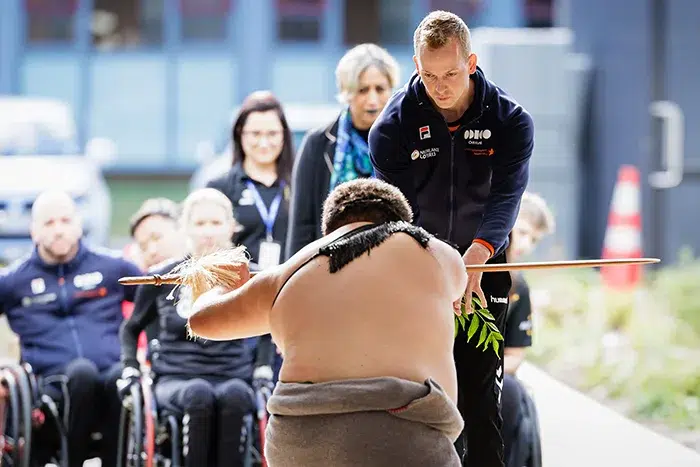
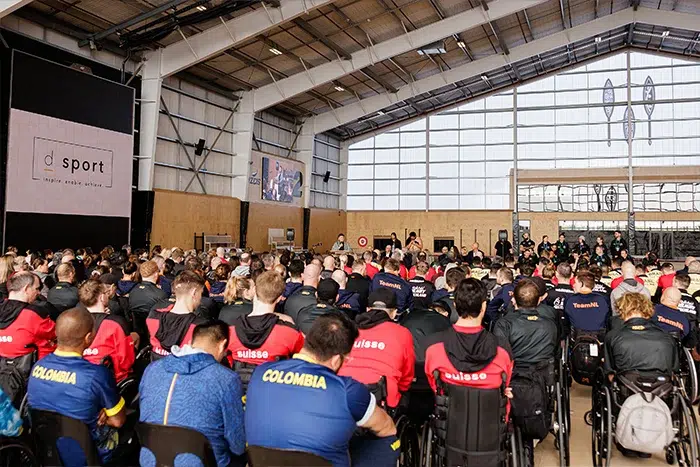
Logistics, logistics, logistics
The logistics that underpin big international sports events like this are immense. And when you’re trying to make them work in a relatively small city like Wellington you need as much help as you can get.
The venue for the action was the New Zealand Campus of Innovation and Sport (NZCIS) in Trentham, and it proved ideal. As well as the indoor playing and warm-up areas it has everything from on-site accessible accommodation to a huge gym and therapeutic spa. But of course the athletes still have to get there from around the world and around New Zealand. And not everyone can stay at the centre, while all involved will inevitably take time out to explore the city and surrounds. Then, consider shifting all the wheelchairs and associated equipment along with the people.
For Catriona, her past experience of similar events gave a vital head start. “It’s about knowing where the pinch points and bottlenecks are,” she says. “I’ve seen it first hand, especially at other international airports. So it’s crucial to start communications with the right people early on.” It was knowledge like this that helped her and her team deliver a seamless experience for everyone right from arrival to departure from New Zealand.
Here to help
There are a number of accessible taxis in Wellington– around three in the city and 13 in the wider region–but they are often tied up with school runs and the drivers are under strict regulation on driving hours. This is where Freedom Mobility could step up and help out. We made five wheelchair vans available, drawn around the country, making up the majority of the fleet available for the tournament. Getting them there was a logistical challenge in itself, but we were happy to waive all relocation charges. Catriona really appreciated our involvement, saying “I don’t think the bid for the event would have been successful if we weren’t able to secure wheelchair vans from the likes of Freedom Mobility.”
Between our wheelchair vans and two others; taxis when available; normal vans; two trucks for transportation of wheelchairs backwards and forwards to the airport, plus the use of private vehicles and public transport for those who were capable, Catriona and her team pulled off the seemingly impossible.
But they couldn’t have done it without outstanding help from Auckland and Wellington airports, plus the team at Air New Zealand. There was just so much to think about. Things like needing the oversized scanner at the airport, storage for gear, wheelchair stowage in the hold and even the fact that e-Gates were largely a no-go because the camera is at the wrong height. Despite all this, the airport experience for all concerned was seamless. Including on the final day, which was huge. “Ten vans were on the road, shuttling people back and forth from the airport starting at 3:00 am,” recounts Catriona. “Each trip involved up to a 4-hour turnaround, with travel times to and from the airport changing as traffic congestion ebbed and flowed. But everyone made it and so did all the gear. Sometimes it was number-8 wire stuff but we did it!” So what was the reaction from those involved?
Oh, Canada
Eight teams competed for the final three WWR Paralympic qualification spots: Australia, Canada, Germany, Brazil, Columbia, Switzerland, Netherlands and New Zealand. As we now know, Canada, Australia and Germany made it through. But the whole tournament was a massive success and enjoyed immensely by those attending.
The teams got to do some great sight-seeing in and around Wellington, making full use of the transport on offer according to Catriona: “We made three vans available pre-Games for teams to use for whatever they fancied doing, via a booking system. From this we learned that Team Canada formed a particular attachment to The Warehouse…”
Via trains, buses, taxis and sometimes private vehicles, participants made the most of being in the world’s coolest little capital, and even the sometimes fickle Wellington weather played ball. The reaction from those who came was universally positive. ‘Seamlessly organised’, ‘friendly yet professional’, ‘a wonderful experience’ are just some of the comments from participants, who loved the event.
As a result, and notwithstanding the Wheel Blacks failing to qualify, everyone who worked on the tournament ended up with a smile on their face, a tear in their eye and pride in their heart. This was New Zealand, punching above its weight again. And we were so pleased to play our part.
Post script:
By the end of the tournament there were suggestions that New Zealand should bid for the 2026 World Championships with 12 teams, but with the increased number of teams and wheelchair users, transport logistics and accessible accommodation options become the determining factor. It’s too soon for New Zealand to commit to this but as the saying goes, never say never!

